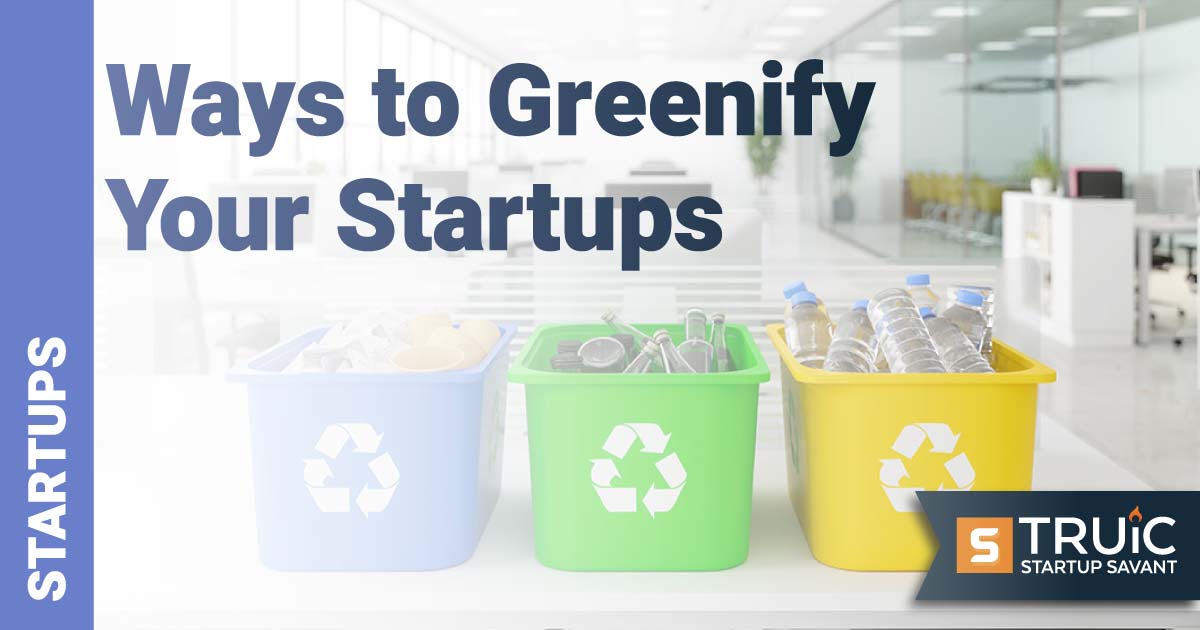With sustainability at the forefront of many people’s minds, startups of all kinds are looking for ways to go green. The good news is that making cleaner, more environmentally friendly choices for your business not only benefits the planet — it can have a positive impact on your staff, customers, and company as a whole. If you’re ready to greenify your startup, you’ve come to the right place. In this guide, we’ve compiled 13 achievable and impactful ways to greenify your startup.
Also Recommended:
1. Conduct an Environmental Audit
Before you can greenify your startup, you need to assess the areas your business could be greener and determine the eco-friendly swaps that work for your company. Performing an environmental audit will determine weaknesses in your business’s water usage, energy consumption, and waste procedures — making it easier to find the best solutions.
2. Utilize Natural Light When Possible
Once you’ve done your environmental audit, you’ll probably be looking for ways to reduce the amount of energy your business uses. Utilizing natural light instead of artificial light sources is an easy way to do just that. Areas that have a higher number of windows don’t require electric lighting for a good portion of the day and can be illuminated further by decorative mirrors that will reflect natural light.
3. Offer Remote Work Options
In our increasingly digital world, working remotely has become more and more common which is great for the environment. Reducing the number of employees that are commuting to work is a simple way to decrease your company’s carbon footprint and provide more flexible work options for employees. Not to mention, with fewer employees working in your office space, energy usage can decrease substantially.
4. Use More Biodegradable Materials
With more biodegradable alternatives to everyday items available, it is not only easier than ever to choose more sustainable products — it’s less expensive. Compostable or biodegradable serving utensils, packaging, or even office supplies can drastically reduce the amount of waste your business produces daily. Start by identifying the single-use products that are used most frequently and researching biodegradable swaps you could implement.
5. Go Digital
Operating any business can be wasteful. Fortunately, the myriad of digital swaps available to businesses today makes it easier than ever to choose sustainable alternatives. Cloud tech, for example, can replace traditional paper filing systems — reducing paper usage, which can result in lower overhead costs and streamlined workflow. Research apps and technology that suit your business, such as time tracking, business management, and productivity tools.
6. Implement Eco-Friendly Tech
Knowing the impact of greenifying your business keeps the momentum going and holds you accountable to your goals towards sustainability. Eco-friendly tech monitors your energy use, newly implemented green practices, and carbon footprint. In turn, giving you a better understanding of where your business can improve and helping to spark ideas for sustainable practices in those areas that are most impactful for your business.
7. Build an Environmentally-Friendly Mindset
Is your company culture environmentally friendly? As the business owner, your attitude towards sustainability and the culture you cultivate within your business can drastically affect your business’s eco-friendliness. Start by encouraging more recyclable materials, plant-based products, and compostable items that are easy swaps for your staff. Then, lead by example and prioritize sustainability yourself.
8. Think Local
Whether it’s office supplies, materials, or ingredients — sourcing supplies locally reduces the amount of transportation required for goods to arrive at your business — lowering your carbon footprint and supporting your fellow small businesses as well as your community. Moreover, by investing in your local community, you are inadvertently investing in a more sustainable, localized future.
9. Encourage Recycling
The best way to encourage employees, customers, and others to recycle is to make it as easy and accessible as possible. Providing recycling bins with clear instructions wherever you have a trash can is a good place to start. Additionally, offering incentives such as discounts or other rewards for recycling is an effective motivator for employees and customers alike.
10. Appoint a “Green Team”
Build a small team of eco-conscious employees to encourage environmentally-friendly behavior in the workplace. Your “green team” can also plan team building and volunteer events centered around sustainability such as tree planting or picking up litter as well as brainstorm additional practices or clean alternatives your business could be implementing to go even greener. This doesn’t need to be a full job description but rather an added layer of interested current employee’s daily tasks.
11. Repurpose Furniture
There are two ways you can repurpose furniture to be a little greener: by either repurposing current office furniture rather than discarding it or by purchasing secondhand or pre-used furniture for your business. The best part is repurposing furniture is greener and can end up saving your startup money by substantially cutting furniture costs. To get started, search for office liquidators in your area to buy or donate office furniture.
12. Greenify Your Office Kitchen
If your office kitchen is in need of an eco-friendly makeover, there are plenty of sustainable swaps available to you. Recycled paper towels, compostable coffee pods (or not using coffee pods at all), and not purchasing food and beverages packaged in plastic are all great places to start. Additionally, consider adding a few plants to your office kitchen to further greenify the space and help clean the air.
13. Choose Renewable Energy Sources
Cutting back on the amount of energy your business uses is a great way to start greenifying, but choosing to use renewable energy sources takes your sustainability efforts a step further. Most energy companies offer a renewable energy option such as wind power for only a slightly higher cost. Alternatively, you can invest in renewable energy such as solar panels for your business which can result in tax benefits or grant opportunities down the line.



